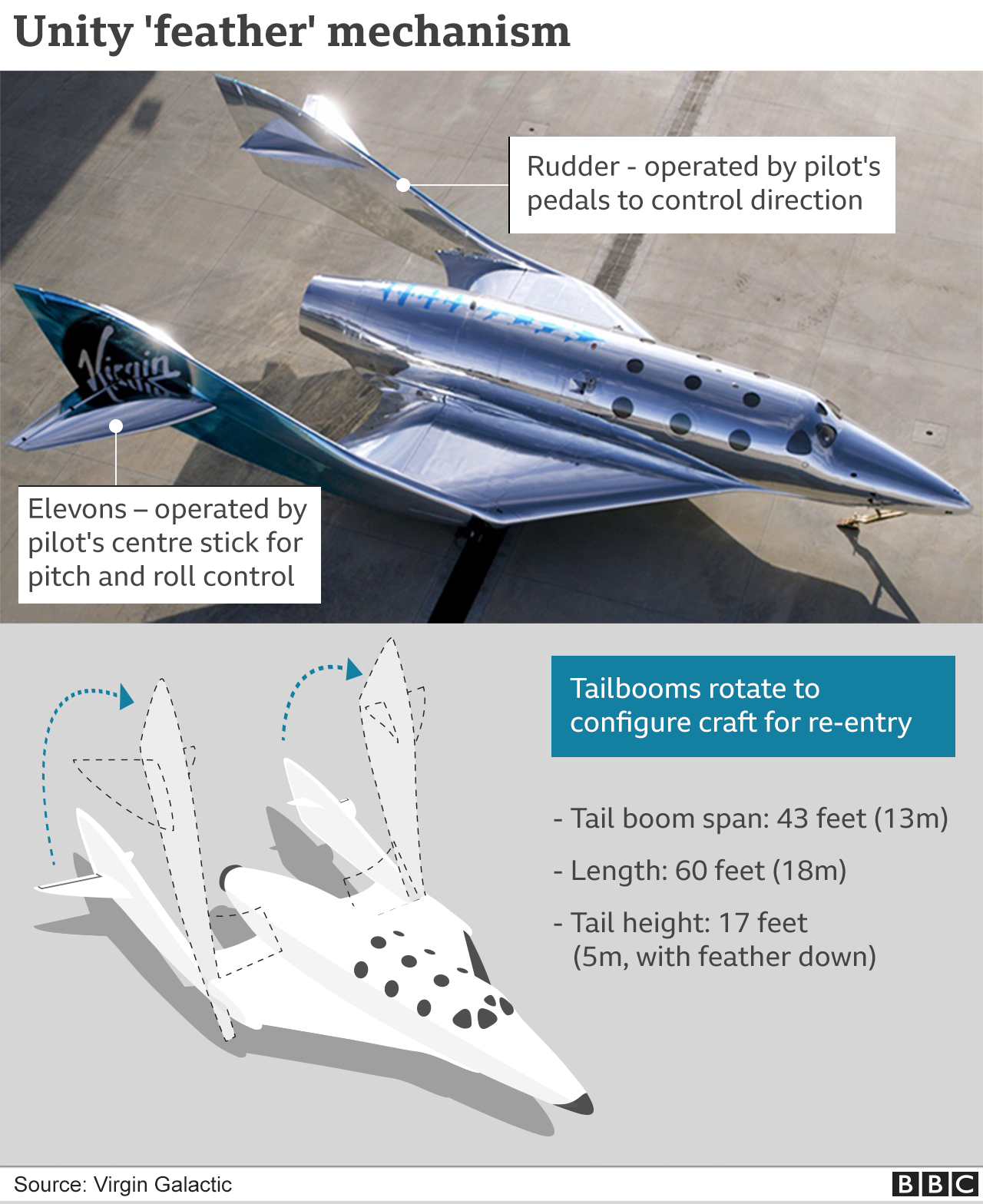Virgin Galactic cleared to resume space flights
- Published
Watch Sir Richard Branson's flight to the edge of space (and back)
Sir Richard Branson's Virgin Galactic company has been cleared to resume flights of its space plane, Unity.
The vehicle was grounded while the US Federal Aviation Administration carried out an investigation into the mission that took the British entrepreneur above the atmosphere in July.
Unity briefly stepped outside the airspace that had been reserved for it.
The FAA says Virgin Galactic "has made the required changes" to its operations and can now return to flight.
Unity is due to have one more outing this year, organised for the Italian Air Force, before going into an extended period of maintenance and upgrades.
At some point next year, it is expected to start routine flights for fare-paying passengers.
Sir Richard's mission on 11 July was still part of the vehicle's test programme.
It saw the businessman ride his rocket plane to a height of 86km (53 miles) above the New Mexico desert - an altitude considered to be "in space" by the US government.
But the FAA declared a "mishap investigation, external" after details about the flight were later reported in the New Yorker.
The magazine's article, external described how Unity, on its glide descent back to its New Mexico spaceport, had flown outside the zone restricted for the plane's use. What's more, Galactic had failed to inform the FAA that this had happened.
The company acknowledged the glide path deviated from the preplanned one, an issue that arose, it said, because unexpected high winds on Unity's ascent had pushed the rocket-powered vehicle slightly off course.
But Galactic stressed that at no time was anyone put in danger, onboard or on the ground.

Clearing Unity to go fly again, the FAA issued a statement on Wednesday, saying: "The investigation found the Virgin Galactic [Unity] vehicle deviated from its assigned airspace on its descent from space.
"The FAA also found Virgin Galactic failed to communicate the deviation to the FAA as required. Virgin Galactic was not allowed to conduct flight operations as the investigation was ongoing.
"The FAA required Virgin Galactic to implement changes on how it communicates to the FAA during flight operations to keep the public safe. Virgin Galactic has made the required changes and can return to flight operations."
In its statement, Galactic said it would in future request a larger volume of restricted airspace in which to conduct its activities, and was updating its flight procedures "to ensure real-time mission notifications to FAA Air Traffic Control".
Galactic CEO Michael Colglazier added: "Our test flight programme is specifically designed to continually improve our processes and procedures. The updates to our airspace and real-time mission notification protocols will strengthen our preparations as we move closer to the commercial launch of our spaceflight experience."
The company is gradually moving to the point where it can start routinely flying space tourists.
Some 600 individuals put down deposits a number of years ago to buy seat tickets costing $200,000-250,000, and tickets sales resumed in August with prices from $450,000 (£325,000) per seat.